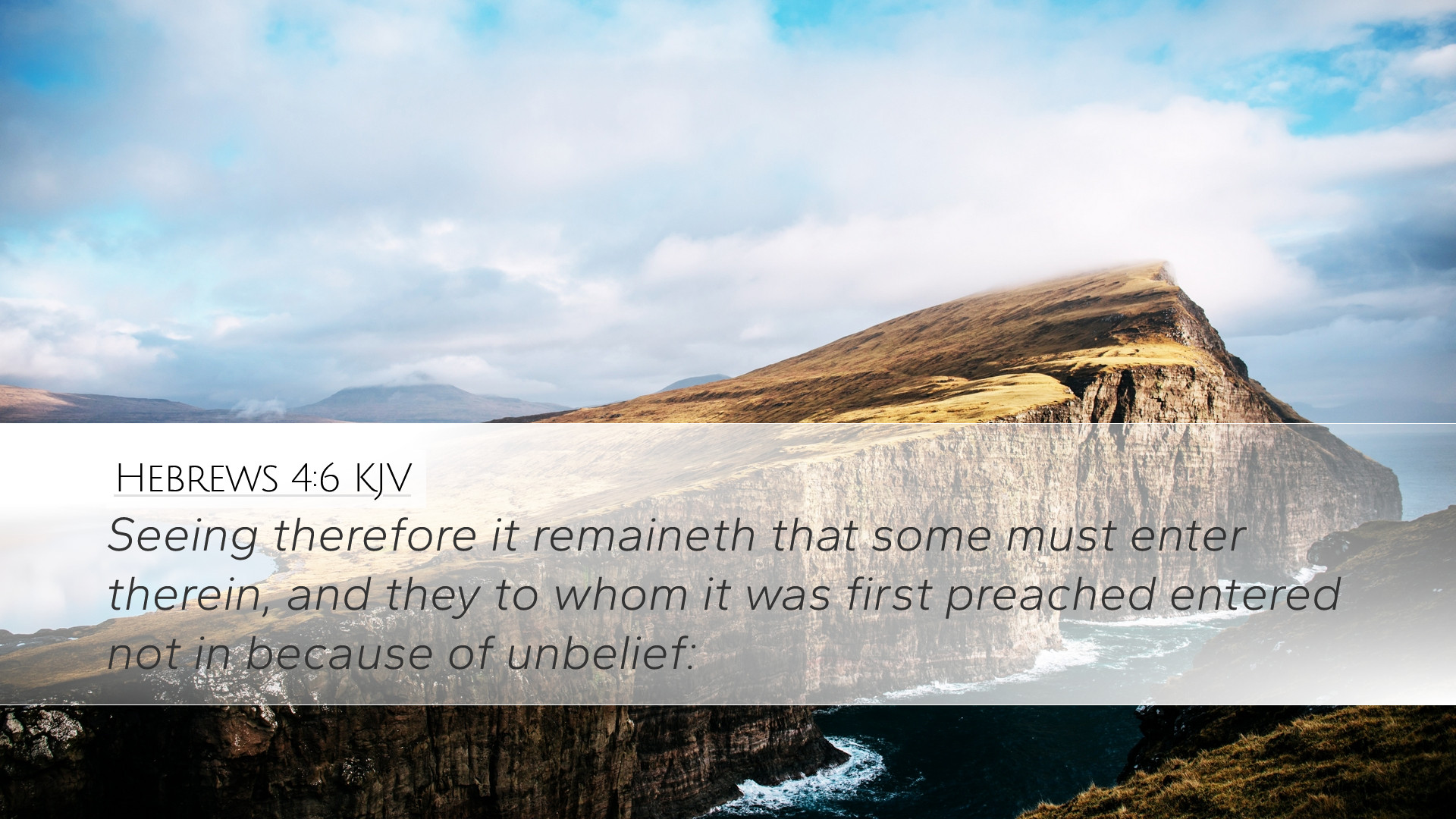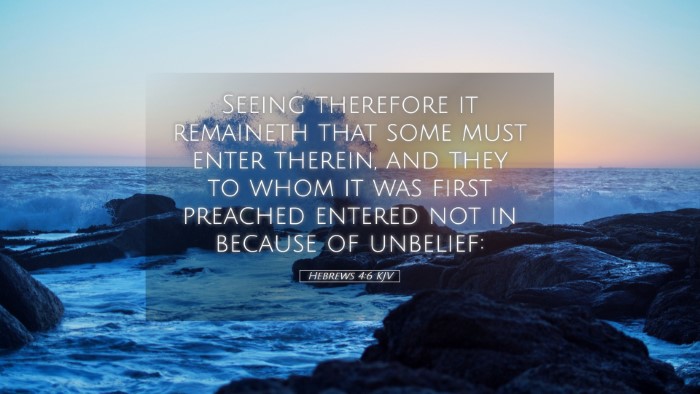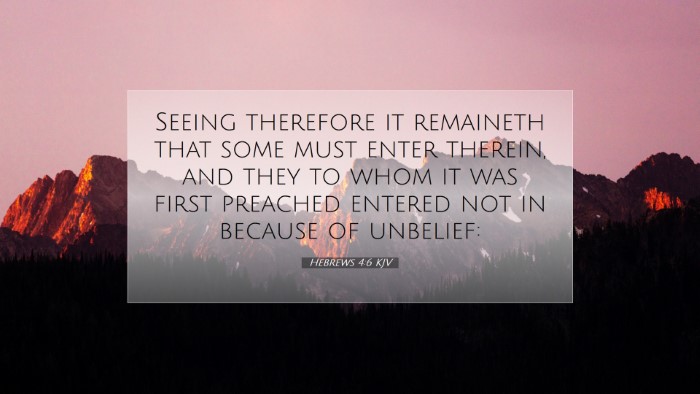Old Testament
Genesis Exodus Leviticus Numbers Deuteronomy Joshua Judges Ruth 1 Samuel 2 Samuel 1 Kings 2 Kings 1 Chronicles 2 Chronicles Ezra Nehemiah Esther Job Psalms Proverbs Ecclesiastes Song of Solomon Isaiah Jeremiah Lamentations Ezekiel Daniel Hosea Joel Amos Obadiah Jonah Micah Nahum Habakkuk Zephaniah Haggai Zechariah MalachiHebrews 4:6
Hebrews 4:6 KJV
Seeing therefore it remaineth that some must enter therein, and they to whom it was first preached entered not in because of unbelief:
Hebrews 4:6 Bible Commentary
Commentary on Hebrews 4:6
Verse Text: "Seeing therefore it remaineth that some must enter therein, and they to whom it was first preached entered not in because of unbelief."
Introduction
The epistle to the Hebrews is a deeply theological book which emphasizes the supremacy of Christ and the nature of faith. Hebrews 4:6 addresses the necessity of entering into the rest of God, a theme that is pivotal in Christian doctrine.
Contextual Analysis
This verse comes at a critical point in the author's argument regarding rest. The author refers back to the Israelites who failed to enter the Promised Land due to their unbelief, drawing a parallel to the spiritual rest offered through Christ.
Insights from Matthew Henry
Matthew Henry elucidates the concept of ‘rest’ as God's promise that remains for the people of God. He emphasizes that it is not just any rest, but a divine rest patterned after God's own rest after creation. Henry notes that those who are skeptical and do not believe in God's promises forfeit this rest.
- The Call to Faith: Henry highlights the need for faith as the means through which believers obtain the promises of God.
- Warning Against Unbelief: He underscores the serious nature of unbelief by referencing past failures of Israel, serving as a caution to the Hebrew believers.
Insights from Albert Barnes
Albert Barnes offers a detailed examination of the Greek terms and structure used in this verse. He points out that “some must enter therein” indicates that God's plans are unconditional and that there will always be a remnant who enter into His rest.
- The Sovereignty of God: Barnes emphasizes that God's election and choice persist despite human unbelief, drawing a line between those who accept God’s invitation and those who refuse.
- Application for Believers: Barnes encourages believers to strive to enter this rest, reflecting on the effort required to maintain faith amidst trials.
Insights from Adam Clarke
Adam Clarke approaches this verse with a pastoral sensitivity, exploring the consequences of unbelief. He discusses how the initial recipients of the gospel message did not attain the promised rest because of their skepticism.
- Historical Reflection: Clarke places emphasis on the historical context of the suffering church and their struggle to fully trust in God's promises.
- Spiritual Application: He urges modern readers to examine their own faith, confronting doubts and unbelief that hinder spiritual growth.
Theological Implications
This verse raises significant theological questions about faith, human responsibility, and divine sovereignty. The concept of ‘rest’ is both a present reality and a future hope for believers. The interplay between God’s promise and human response forms the crux of Christian faith and obedience.
Practical Applications
For pastors and theologians, Hebrews 4:6 serves as a rich source of exhortation for congregations. The call to faith must be coupled with an awareness of the dangers of disbelief, serving as a reminder of the importance of steadfastness in spiritual pursuits.
- Encouragement for the Faithful: Pastors are encouraged to preach on the joy and necessity of entering into God's rest, drawing from both the Old Testament accounts and Christ's fulfillment of this rest.
- Challenge to the Doubtful: This verse challenges both leaders and laypersons to confront any unbelief they may harbor, leading to spiritual renewal and reinvigoration of faith.
Conclusion
Hebrews 4:6 acts as a profound reminder of the consequences of unbelief while simultaneously beckoning believers to enter into God’s promised rest through faith. The insights gleaned from public domain commentaries not only deepen our understanding of the scripture but also inspire us to trust in God's faithfulness.


